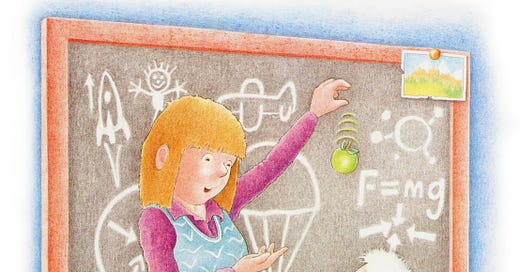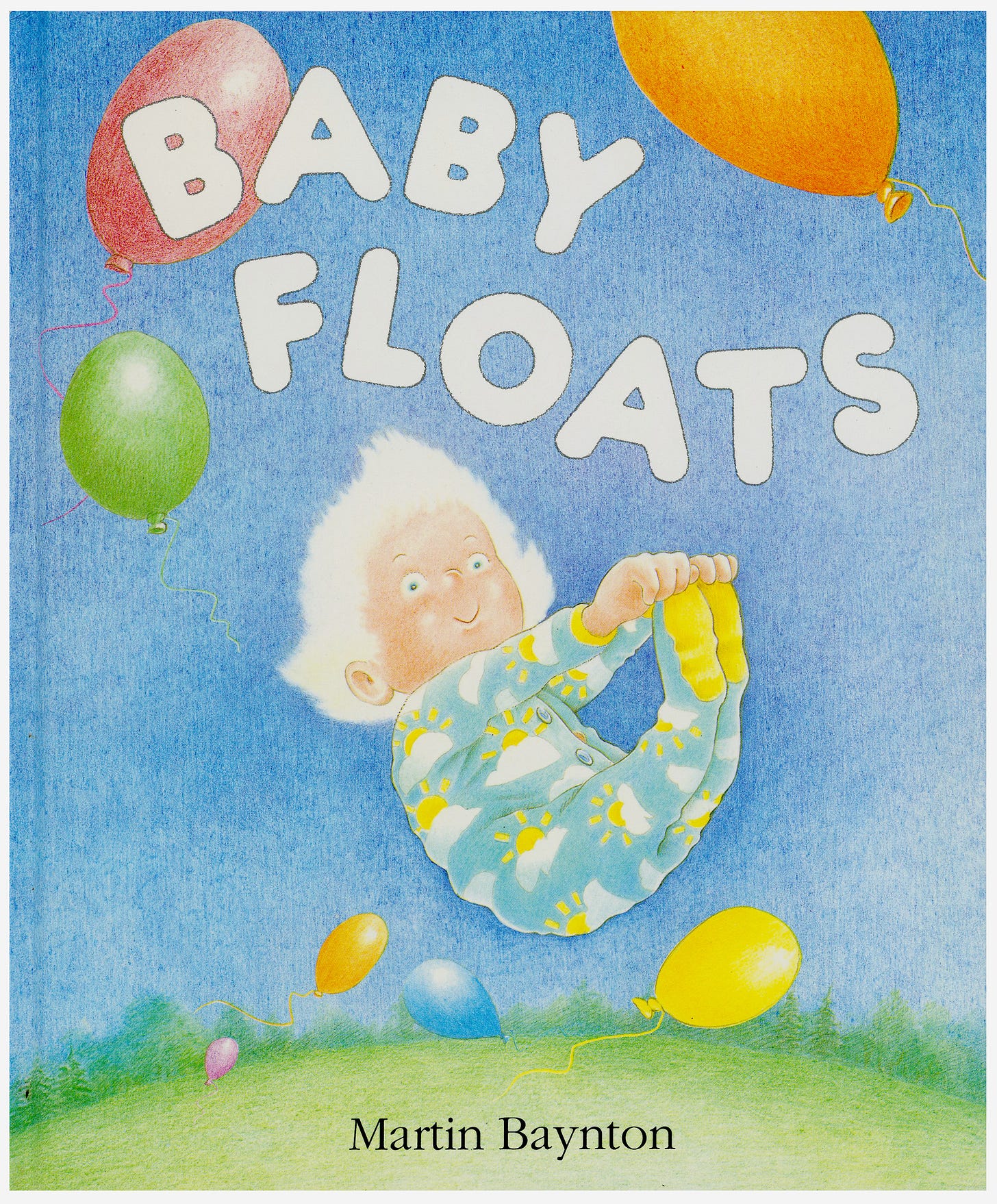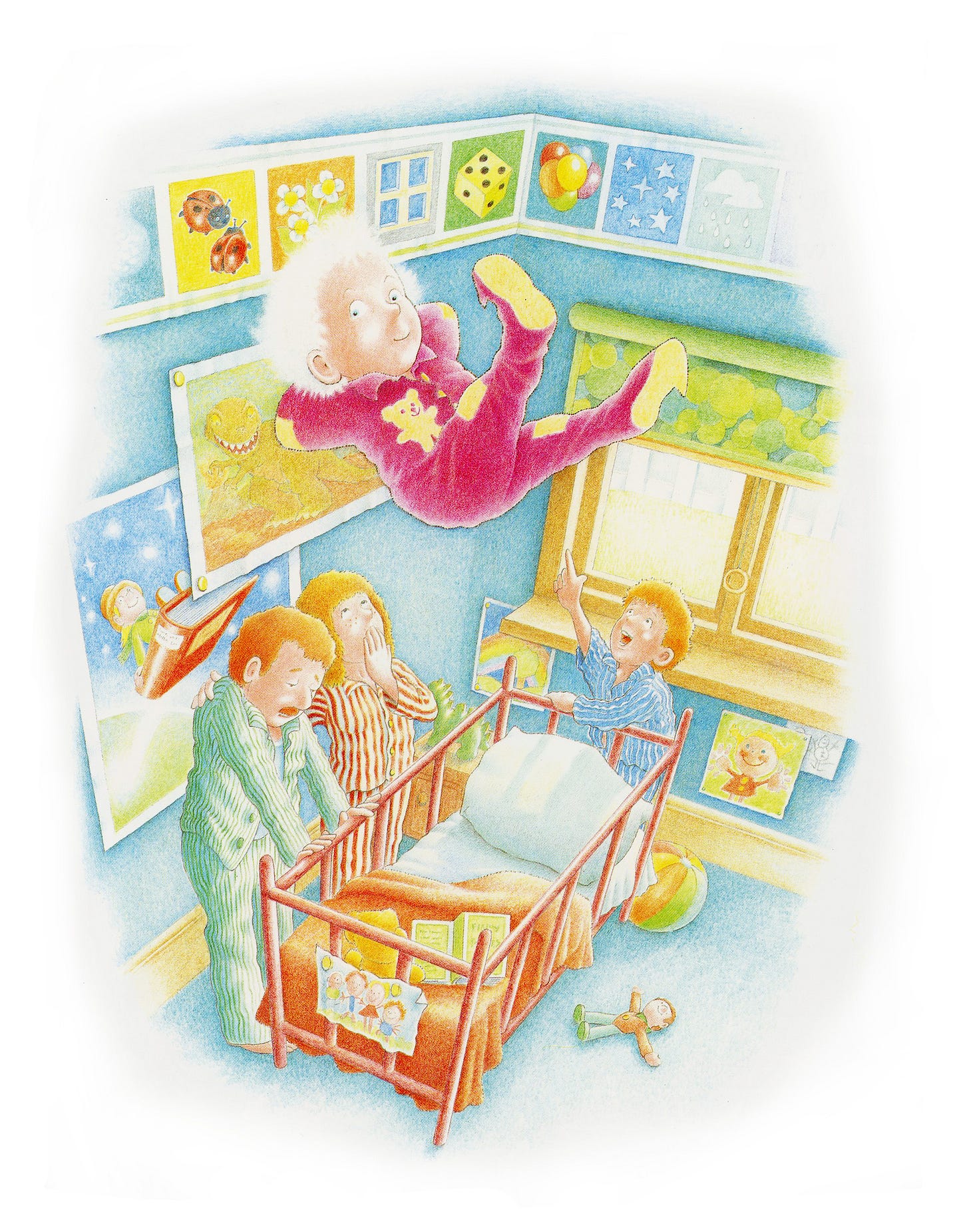Baby Floats
I wrote Baby Floats in response to something I was experiencing in the early nineties when I was a parent of two young children - the ephemeral and transient nature of everything we hold dear. It wanted to express it, and my medium is kid’s books. I think a well written kids’ book can operate much like a good poem, both can package and express a complex idea in a clear and accessible way. Baby Floats was written as much for parents as it was for children, a story that offered different things to different readers, depending on their age and life experience.
A lot of ideas have come together in the book: the distinction between reality and fantasy; age-appropriate behaviour; the loss that comes with change, and tolerance for diversity.
For context, I should begin with the personal moments that triggered me into wanting to explore all this in a kid’s book. The first is down to a personal trait. For as long as I can remember I have been blessed with an overwhelming sense of melancholy that can wash over me in times of great personal happiness. I choose to see it as a blessing, not as a curse, because it has forced me to celebrate and immerse myself in the transience of each happy moment, knowing with complete certainty it will be gone forever - that our lives are an endless series of beautiful ice sculptures.
This trait went into overdrive when I was a young parent. I felt I was living the raw truth of Shakespeare’s line about the seven ages of man, and that within this age of being a parent, lay yet another set of ages - the seven ages of the child.
It felt like life was a constant parade of short-lived bereavements. Baby in the pram - gone! Baby in the sandpit - gone. Baby crawling - gone. Baby talking cute gibberish - gone. Child at home, child at kindergarten, etc etc. All fleeting, all golden treasures that will never come again. Of course, some of these ages seemed endless at the time, exhausting periods of sleepless nights that would never end.
The second personal moment was at the birthday party of a friend’s two-year-old. They also had a five-year-old. When it came to blowing out the candles on her birthday cake, the two-year-old had tried her best, but the concept of blowing was new, and instead she had sprayed the cake with spit. All the adults thought this was cute and delightful, so the five-year-old, quite reasonably, assumed that he would get the same reception when he sprayed the cake. It was a confronting moment of age-appropriate learning for him.
Another, more personal moment, was when my son, aged five, had pleaded with me to tell him the truth about the existence of Santa. We had kept the fiction alive for the sake of our daughter who was only two years old at the time. I was tucking my son in for the night and he had burst into tears. He didn’t want to share what was upsetting him, but I kept pushing and finally he told me how some of his mates at school were giving him a hard time for his insistence that Santa was real. So we spent the next twenty minutes unpacking that one. It was a transition from one age to another, he was sworn to secrecy, a member of the tribe-of-knowing, and it separated him in some small way from his younger sister.
Baby Floats was my attempt to distil all these ideas into a children’s book. It came out in 1991, published by Walker Books in the UK. It was well received and became a favourite with parents. I’m very pleased with all the positive reviews, they showed that the complexity of combining the associated themes had worked. I’m particularly proud of the review in the Sunday Times from Susan Hill. ‘Every word is made to count, it’s quirky and funny - the sort of book that will take its place on the shelf of all-time favourites.






